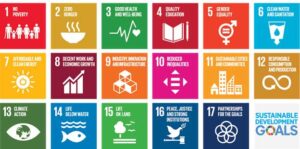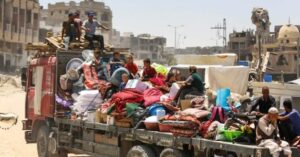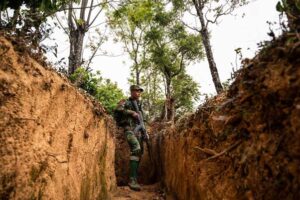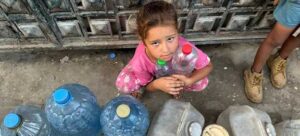
Armed Conflicts, Biodiversity, Civil Society, Climate Change, Featured, Gender, Global, Headlines, Human Rights, Inequality, Migration & Refugees, Sustainable Development Goals, TerraViva United Nations

– Each year the international community comes together at the UN’s headquarters in New York to take stock of progress on sustainable development. This year’s High-Level Political Forum (HLPF) is being held between 8 and 18 July. Representatives from 36 countries, as per the UN HLPF website, will showcase their achievements on commitments outlined in the 2030 Agenda for Sustainable Development, presenting their Voluntary National Reviews (VNRs).
This year’s HLPF convenes amid sobering times, underscored by findings from the recent UN Sustainable Development Goals (SDGs) 2024 report. The report highlights growing inequalities, an escalating climate crisis, accelerating biodiversity loss and disappointing progress towards gender equality. These challenges are compounded by conflicts in Gaza, Sudan, Ukraine and beyond, resulting in close to 120 million people being forcibly displaced worldwide. Alarmingly, only 17 per cent of SDG targets are on track, with around half making minimal or moderate progress, and progress on over a third having stalled or regressed.
Among the SDGs being reviewed this year is SDG 16, which includes commitments on responsive, inclusive, participatory and representative decision making, access to information and fundamental freedoms. These hard-won commitments recognise the importance of transparency, accountability and participation in achieving the SDGs. They were agreed only after persistent advocacy by civil society activists. For civil society, it’s crucial that these commitments are realised if the transformative promise of the SDGs is to be achieved, in particular because they enable civil society to work with governments to help deliver the goals.
One major reason for uneven progress on the SDGs is the restriction of civic space in many countries around the world. According to the CIVICUS Monitor – a participatory research collaboration – globally only two per cent of people live in open civic space conditions, where civil society is free to exist and act. Of the 36 countries slated to present VNRs this year, only three – Austria, Palau, and Samoa – have open civic space.
Civic space encompasses the right of people to organise, mobilise and speak out to shape the political, social, and economic structures that impact their lives. Where civic space isn’t open, communities have significantly restricted and limited agency to pursue progress – the kind the SDGs envisage. People who expose corruption, advocate for accountability and stand up for the rights of excluded groups are attacked.
In many countries around the world, civil society organisations and activists are being threatened. One-way states are doing this is by misusing anti-terror laws, cybersecurity laws and health emergency laws against them. States such as Cambodia, Egypt, India, Israel, Russia and Venezuela, among others, are subjecting civil society organisations to a complex maze of regressive laws and practices to deny them raising funds from domestic and international sources. This undermines civil society’s ability to push for innovative policies, deliver services to the people who need them most and act as a watchdog over the use of public resources.
Meaningful civil society participation at all levels is crucial for realising the SDGs. However, even within UN platforms like the HLPF, there remains no official way of integrating civil society voices into VNR processes, leading civil society organisations to produce parallel ‘shadow reports’ on the forum’s margins. This current format undermines the potential for meaningful engagement from civil society, leads to duplication of efforts, mismatches data and hinders accountability of states.
If the SDGs are to be achieved, it’s paramount to create a conducive environment where civil society can thrive and participate meaningfully in decision-making and accountability processes, without fear of reprisals. That’s why many civil society organisations have banded together under the Unmute Civil Society initiative to advocate for practical solutions to overcome the challenge of international-level participation. The UN must demonstrate leadership by making more space for civil society at the HLPF.
Jesselina Rana is CIVICUS UN Advisor at UN Hub in New York City.












